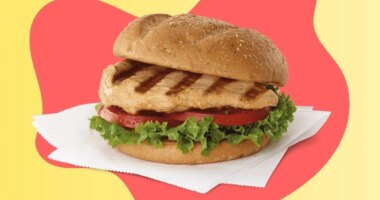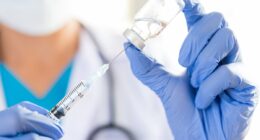Even if you love cheese, there’s a chance it might not love you back. Did you know that about 65% of the population has a reduced ability to digest lactose after infancy? And even if you aren’t lactose intolerant or sensitive, your body may still not digest cheese well for a variety of reasons. For example, Amanda Sauceda, MS, RD, notes that you could have an intolerance or allergy to the casein or whey protein in cheese.
“The body may also be deficient in specific enzymes, or may have activated immune mechanisms caused by diseases or disorders of the gastrointestinal tract,” explains Edibel Quintero, RD, a registered dietitian and medical content author at Health Reporter.
Whatever the reason for it, if you notice that eating cheese is causing you unpleasant side effects, it may be time to take a break. (We know, this may be a little easier said than done.) The good news? Nowadays, there are plenty of non-dairy alternatives—from cashew brie to tofu gouda.
“You could also try natural cheeses like cheddar, Colby, mozzarella, and Monterey Jack, which are just about lactose-free thanks to the way they are made,” says Sauceda. “Everyone has a different tolerance level for lactose so try adjusting portion size and see how it feels for you.”
Here are some of the top signs you should stop eating cheese, according to dietitians. And since you still deserve some ooey-gooey goodness in your life, be sure to scope out these 13 Vegan Cheese Products So Delicious, You Won’t Know the Difference.


Even though a cow’s milk allergy is far more prevalent in young children, it’s still one of the most common food allergies in adults, as well.
If you experience any itching, tingling, or swelling around your tongue, throat, or lips after eating cheese, there’s a chance you might have this allergy. This means that proteins in the cheese bind to specific antibodies and trigger your immune defenses. Other potentially more severe signs of a milk allergy include:
- Wheezing
- Hives
- Trouble breathing
These symptoms can be life-threatening, and may require immediate attention from a physician, says Quintero. According to Blanca Garcia, RDN, a registered dietitian and nutrition specialist for Healthcanal, a doctor will usually prescribe an antihistamine to relieve symptoms of the allergic reaction.
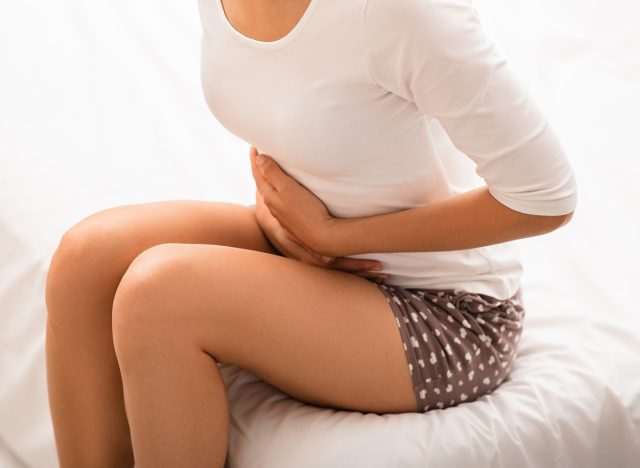

If you experience digestive discomfort like bloating, gas, or diarrhea after a cheese-laden meal, that may point to lactose intolerance or sensitivity, says Sauceda.
READ RELATED: Who is lalogonebrazzy480? TikTok star shot and Death, Aged 22, Family
These symptoms will typically set in about 30 minutes to two hours after eating cheese.
Abdominal cramps and diarrhea are other warning signs to look out for. According to Garcia, these symptoms result from not having the enzyme lactase that breaks down the lactose sugar in dairy products.
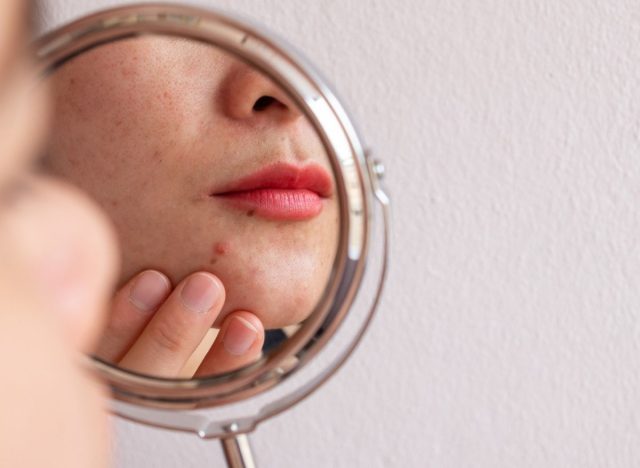

As it turns out, noshing on pizza, mac and cheese, or a cheese board can trigger breakouts in some people. According to Nataly Komova, RD, a registered dietitian and fitness expert for JustCBD, the hormones found in the milk can stimulate the production of sebum, leading to oily skin, clogged pores, and acne.
So, if your skin’s been suffering lately and you suspect it may have to do with your diet, try cutting out cheese (and other dairy products) to see if your complexion clears up.
Speaking of skin problems — it’s worth mentioning that a 2015 review in Postgraduate Medical Journal found some patients who were lactose intolerant reported experiencing rashes and eczema flare-ups after eating dairy products.


According to Garcia, dairy can be a common cause of constipation. In fact, a 2013 study in Nutrients found that children with chronic constipation experienced relief when replacing cow’s milk with soy milk.
Cheese is notorious for being “binding”—and part of the reason why it can prevent you from having normal bowel movements is that it’s super high in fat and super low in fiber.
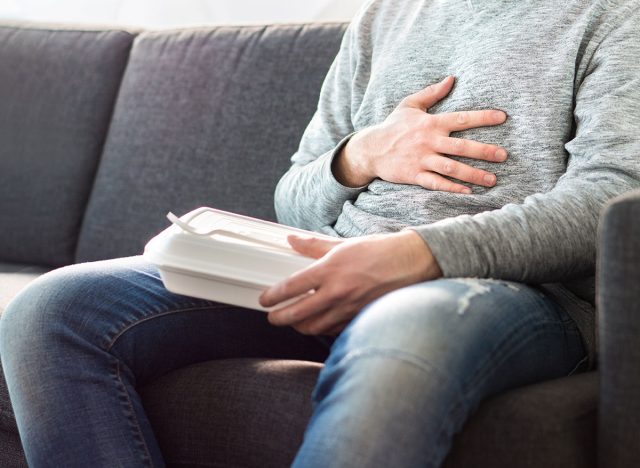

A small 2012 study in The Journal of Pediatrics found that parents who eliminated cow’s milk from their child’s diet noticed a decrease in acid reflux episodes.
If you have acid reflux or lactose intolerance, it’s not uncommon to have a little indigestion after eating cheese—especially in large quantities — says Komova. This is not only because dairy is high in fat, but also because it’s known to relax the esophagus’ sphincter muscle, thus enabling more acid from your stomach to travel upward.
Rebecca Strong
Source:





